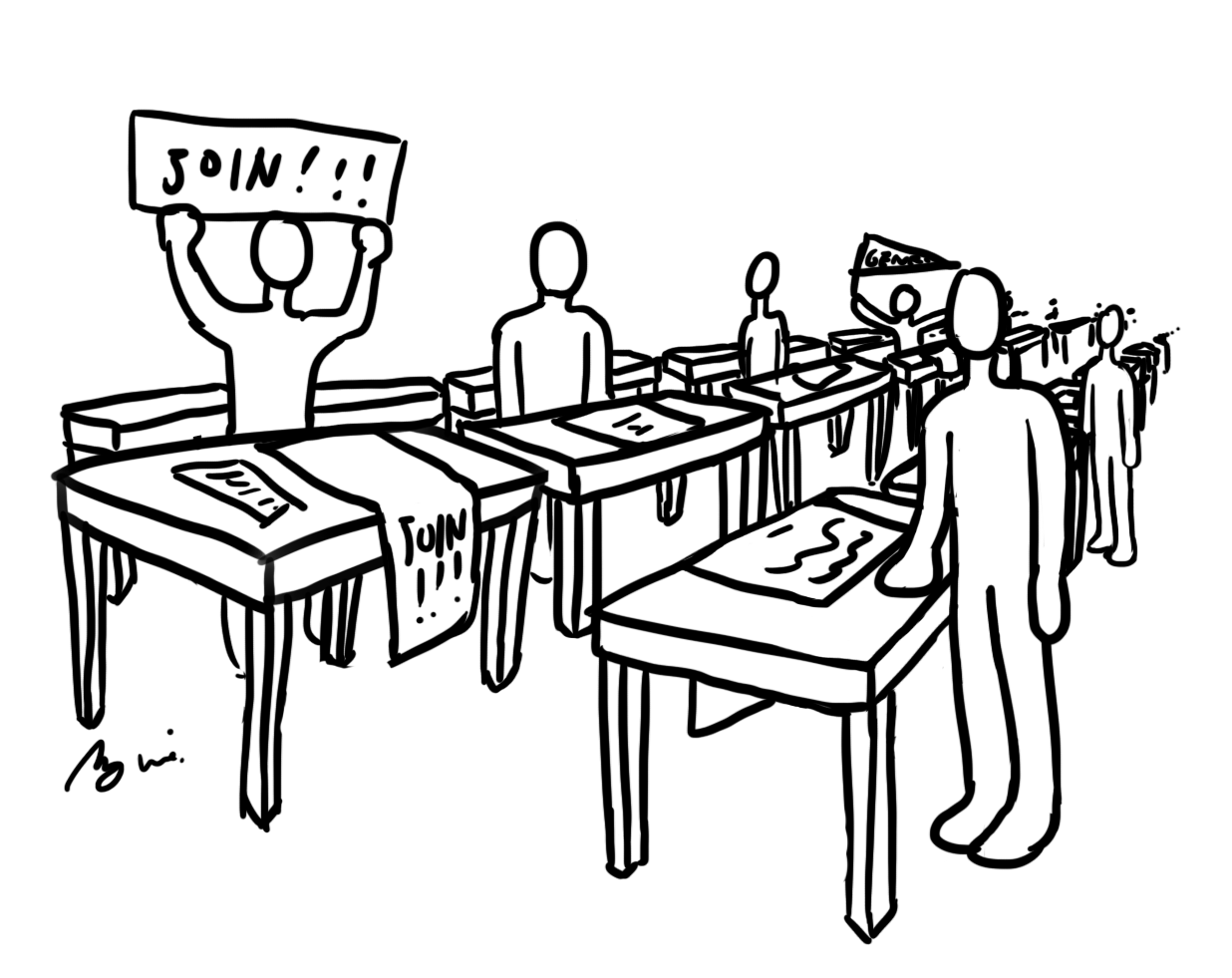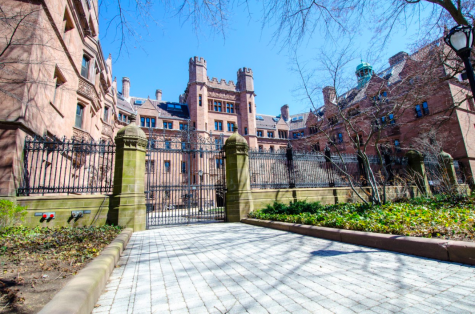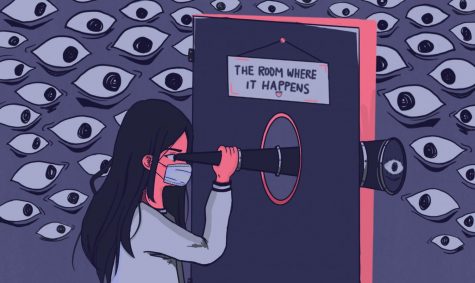Explosion in number of clubs: a good thing?
 A. Wei
A. Wei
Over the past two years there has a been a drastic increase in the number of clubs at Groton. I’m not entirely sure what is to blame for this recent explosion in the number of clubs, but my personal theory is that it is at least in part due to the institution of Fall Jam at the beginning of the past two years. Not only has Fall Jam made school recognition of a club just one email to Mr. Leroy away, but it has also created an atmosphere in which otherwise ridiculous clubs can gain large numbers of pledged supporters who otherwise would not have dreamed of joining said club. By aggregating large numbers of students in the forum and aggressively marketing their clubs from behind tables like vendors at a street market, Fall Jam has exactly its expected result of attracting students to clubs that wouldn’t otherwise exist. I would argue, however, that this drafting of somewhat uninterested students artificially inflates the number of club members and ultimately results in wasted time and energy.
A perfect example of this type of “club drafting” is the Groton Economics Club (GEC). As a result of heavy recruiting through Group-Student emails and by word of mouth, GEC may have attracted people who were not truly interested in economics. According to Seamus McAvoy ’19, who attended the first meeting, “most people just go to the first meeting for pizza and the yearbook photo.” To an extent, their recruiting worked extremely well, attracting an impressive 121 members, including seven so-called “officers,” who are appointed certain duties in the club. The second meeting was not as successful. According to one member, George Altshuler ’18, there were a grand total of eight members in attendance and a noticeable absence of two out of three heads. The aforementioned “officers?” George says that only a few showed up to the second meeting. While there may not be anything inherently wrong with taking a funny yearbook photo and eating some pizza, the story of GEC creates questions. Particularly, how can one determine how seriously committed a student is to a club?
As GEC club Victor Liu ’17 says, “While some may benefit in name from their ‘membership’ in our club, only the students who participate in our activities, whether it be economics discussions or mock-investment competitions, benefit in terms of skill development.”
Other examples include “Arthropod Club” and “French Club,” both of which are listed in the 2016-2017 Student Leadership document. Many students would be hard-pressed to remember any sign of life from these clubs. Oftentimes, I only learn of the existence of clubs like these when I see photos of their heads in the yearbook at the end of the year.
An additional contributor to the bounty of unnecessary and unattended clubs at Groton is the notion that clubs can help college admission chances. Students planning on joining several clubs with the idea that it will increase their chances of getting into the college of their choice should know that this is an absurd myth that unfortunately continues to persist at Groton. Overall, the false advertisement of clubs irritates me less than the students who have this misconception and proceed to join ten different clubs and only attend the meetings once a term. Similarly, the students who only continue to attend a club because they believe that their extravagant title as “Associate Director of Club Operations” will look just fantastic on their college application are missing the point. I urge all students to follow your passions and participate in student organizations that interest you. Just be sure that you are working on developing your interests and not your college application.
It would be wrong not to mention some of the clubs at Groton that really do provide interesting after-school pursuits for the students who participate in them. The established Debate Society, Circle Voice, and Grotonian are all models for the dedication and tangible success that all student organizations should strive to have at Groton. The Cultural Alliance, Gender and Sexuality Alliance, and Humanism meetings held weekly also do a great job of providing spaces for discussion and community for their large body of committed attendees. And perhaps my favorite clubs are the smaller, specialized groups like the Groton Trapshooting Club and Classics Club that, despite not attracting large numbers of participants, are really enjoyed by those who do participate.
The explosion of clubs over the past two years is a positive change as long as participation in these organizations is driven out of enjoyment and not out of obligation. Although the myth that clubs increase college admission chances remains at Groton, some clubs are not motivated by this myth, but by a legitimate passion for one area. As long as students are driven by a legitimate passion for their club, there is no student organization that shouldn’t exist at Groton.









